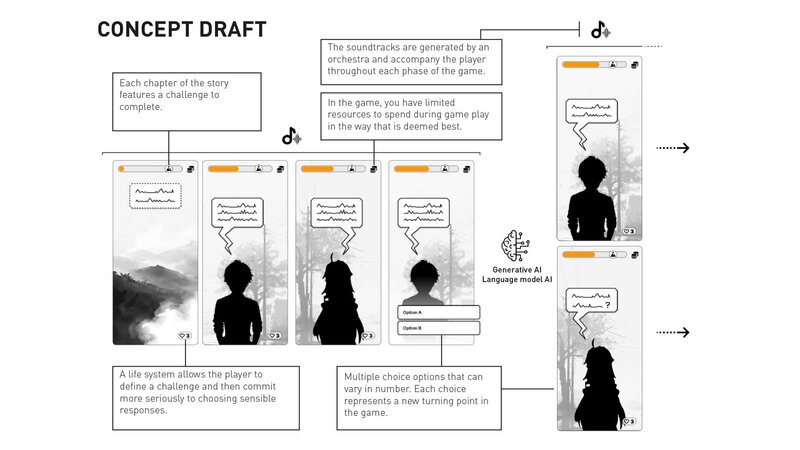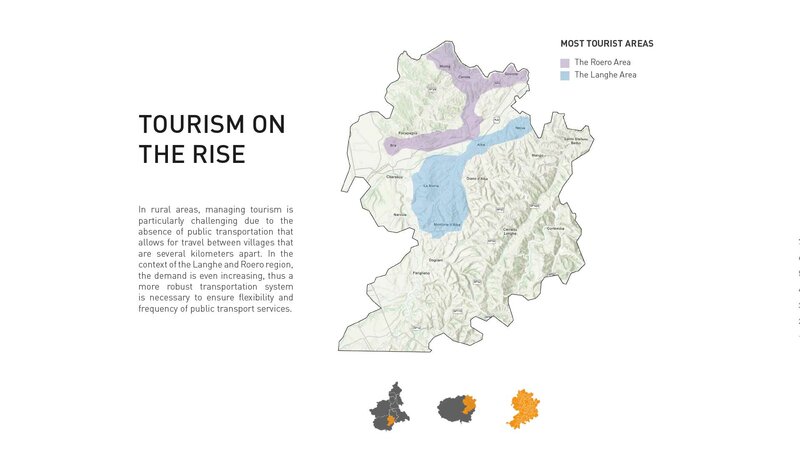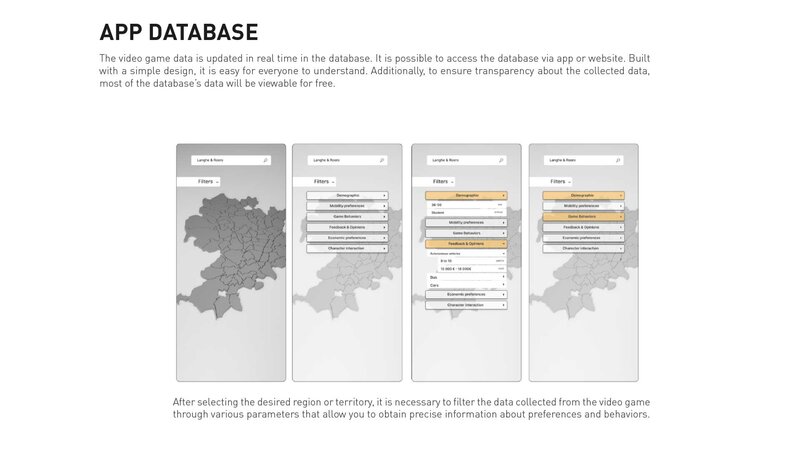
Transport revolution in rural areas through gamification
Ivan Vietti's thesis project for Città Metropolitana di Torino
Academic year
2013-2014
The thesis addresses the challenges of public transportation in rural areas, where car use is often the most convenient option despite its costs. Given the unique difficulties faced by different rural regions, the thesis aims to develop a new design method for transportation solutions using a transdisciplinary approach. It incorporates principles from game design to create innovative mobility solutions, leveraging the way gamers respond to complex challenges and the power of crowdsourcing in video games.
The study begins with research on the Langhe region to assess its current transportation system, demographic profile, and user satisfaction. It then explores the principles and motivations of game design, aiming to combine them with mobility design to identify valuable insights. The development of a video game is proposed in three phases:
- Game Concept: Creating a game that engages players from the region to study their behaviours and preferences related to mobility.
- Data Collection: Gathering player responses in a database managed by artificial intelligence to analyze and organize the data.
- Application: Using the collected data to design a potential transportation system with autonomous vehicles for a small test area.
Recently, the Metropolitan City of Turin published the Urban Plan for Sustainable Mobility (PUMS), a document outlining ambitious future goals for developing and organising mobility in the region. While the objectives to be achieved by 2030 may be clear at a general level, the path to achieving them is much less defined. Thanks to the technical and territorial analysis from the Links Foundation, valuable insights were obtained into the current state of mobility in the region and all ongoing projects. The theses in Transdisciplinary Design analyze these future mobility goals through a transdisciplinary lens to unveil new opportunities and potential to achieve them innovatively.
Thesis Supervisor: Wouter Haspeslagh
Assistant Supervisor: Lowie Vermeersch, Michael Kaethler


